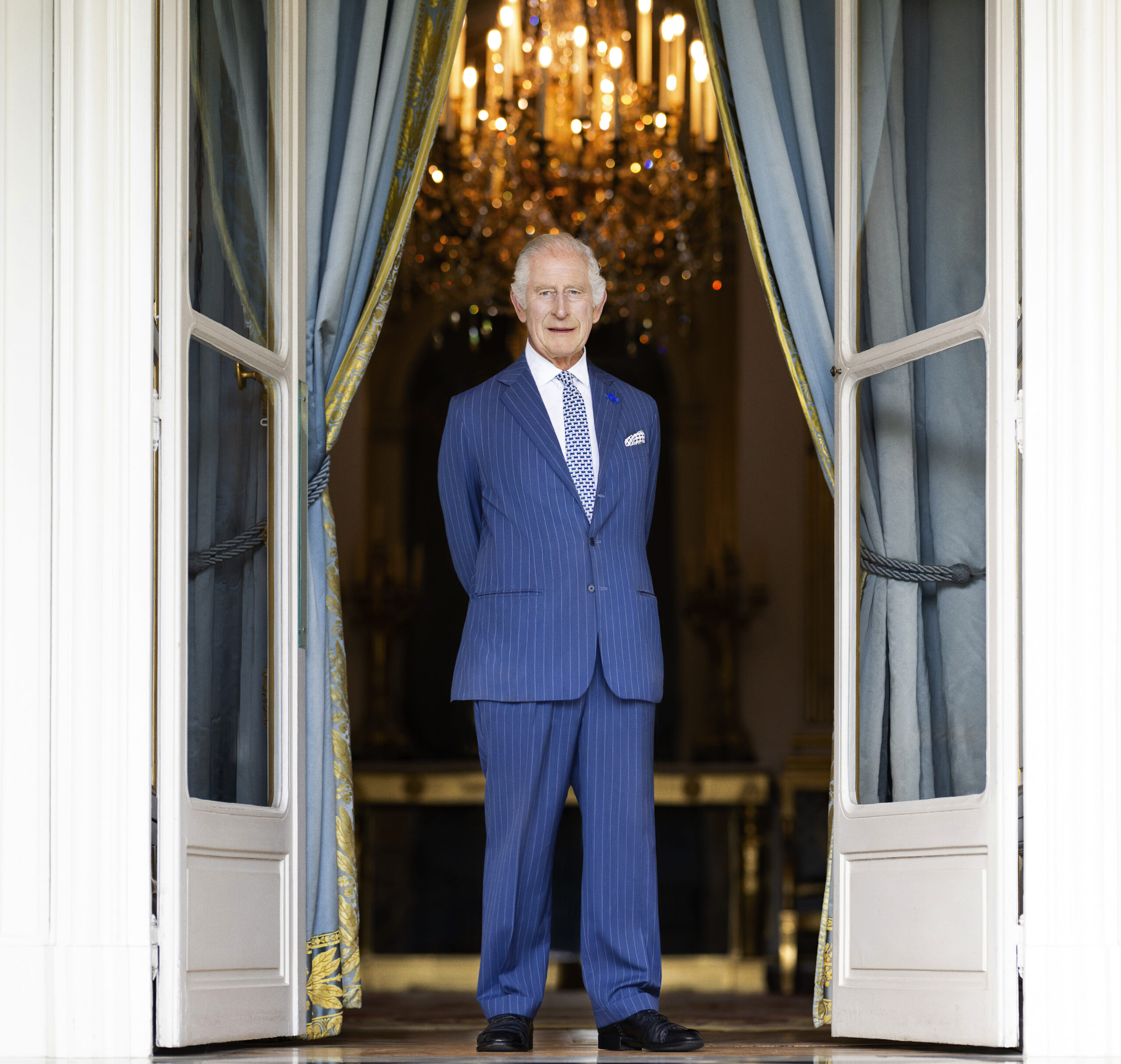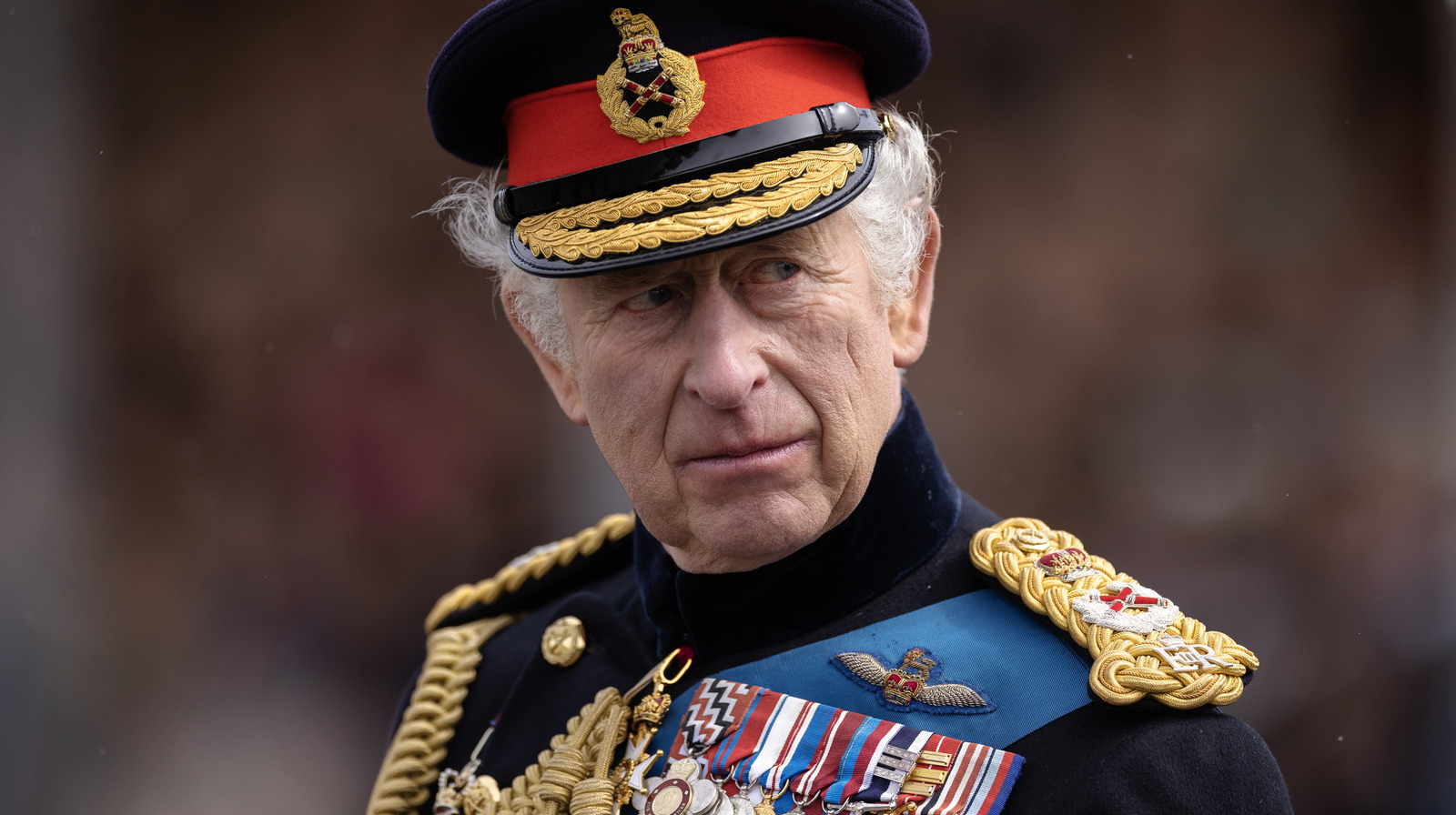When it comes to discussing Charles Cancer, we’re diving into a topic that’s both deeply personal and universally impactful. This isn’t just about a medical condition; it’s about the people who face it, the families who support them, and the journey that unfolds. Cancer is a word that carries so much weight, and understanding Charles Cancer specifically opens doors to better awareness and support. So, buckle up, because this is going to be an important ride.
Let’s be real for a second. Cancer isn’t something you can just brush off like a bad day at work or a missed bus. It’s serious, and it affects millions worldwide. But here’s the deal: knowledge is power. The more we know about Charles Cancer, the better equipped we are to fight it, support those who have it, and even prevent it in some cases. This isn’t just about statistics; it’s about lives.
Before we dive deeper, let’s set the stage. We’ll talk about what Charles Cancer is, why it matters, and how we can all play a role in making a difference. Whether you’re here because you’re personally affected, know someone who is, or simply want to be informed, you’ve come to the right place. Let’s get started.
Read also:Elon Musk And Grimes A Futuristic Love Story Beyond The Stars
What Exactly is Charles Cancer?
Charles Cancer might sound like a specific type, but in reality, it’s often used as a general term to describe various forms of cancer that affect people named Charles—or anyone, really. Cancer, at its core, is the uncontrolled growth of abnormal cells in the body. These cells can invade and damage healthy tissues, leading to serious health issues. But why does it matter so much?
Breaking Down the Basics
- Cancer can develop in almost any part of the body.
- It’s caused by a combination of genetic, environmental, and lifestyle factors.
- Early detection and treatment are key to improving survival rates.
Think of cancer like a rogue player in a game of chess. It doesn’t follow the rules, and it can take over the board if not stopped. But with the right strategy, we can outsmart it. Understanding the basics is the first step in that process.
Why Should You Care About Charles Cancer?
Here’s the thing: cancer doesn’t discriminate. It doesn’t care about your age, gender, or background. Anyone can be affected, and chances are, you know someone who has been touched by it. Charles Cancer, or any form of cancer, isn’t just a medical issue—it’s a human one.
Stats That Matter
According to the World Health Organization (WHO), cancer is responsible for nearly 10 million deaths globally each year. That’s a staggering number, and it underscores the urgency of the situation. But there’s hope. Advances in research and treatment are making a difference, and awareness is key to driving progress.
Charles Cancer: A Closer Look
Let’s zoom in on Charles Cancer specifically. While it’s not a medically recognized term, it serves as a reminder that cancer affects real people with real stories. Charles could be your neighbor, your colleague, or even you. Understanding the specifics of his journey can shed light on the broader fight against cancer.
Biography of Charles
| Full Name | Charles Anderson |
|---|---|
| Date of Birth | May 12, 1978 |
| Occupation | Software Engineer |
| Diagnosis | Stage 3 Lung Cancer |
| Current Status | In Treatment |
Charles Anderson is a 45-year-old software engineer from San Francisco. He was diagnosed with stage 3 lung cancer in 2022 after experiencing persistent coughing and fatigue. His story highlights the importance of early detection and the challenges faced by cancer patients today.
Read also:Abby Brittany Married The Fascinating Story Of Two Hearts Becoming One
Causes and Risk Factors
So, what causes cancer? The answer isn’t simple, but researchers have identified several risk factors that contribute to its development. These include smoking, poor diet, lack of physical activity, and exposure to certain chemicals. For Charles, his diagnosis came as a shock, but it also sparked a conversation about prevention and awareness.
Top Risk Factors
- Smoking and tobacco use
- Excessive alcohol consumption
- Poor dietary habits
- Lack of exercise
- Genetic predisposition
It’s important to note that not all cases of cancer are preventable, but many are. By making healthier choices, we can reduce our risk and improve our overall well-being.
Symptoms to Watch For
Knowing the signs of cancer can make all the difference. Early detection often leads to better outcomes, so it’s crucial to be aware of potential red flags. For Charles, his symptoms included:
- Persistent cough
- Shortness of breath
- Unexplained weight loss
- Fatigue
If you or someone you know experiences these symptoms, don’t hesitate to seek medical advice. Time is of the essence when it comes to cancer.
Diagnosis and Treatment Options
Once Charles was diagnosed, his healthcare team developed a comprehensive treatment plan. This included a combination of chemotherapy, radiation therapy, and targeted drug therapy. While the road ahead won’t be easy, Charles remains hopeful and determined.
Common Treatments
- Chemotherapy
- Radiation Therapy
- Surgery
- Immunotherapy
Each treatment option comes with its own set of benefits and challenges. The key is finding the right approach for each individual patient. For Charles, staying informed and working closely with his doctors has been crucial to his journey.
Support Systems and Resources
No one should face cancer alone. Support systems are vital for both patients and their loved ones. Whether it’s through family, friends, or support groups, having a network of people to lean on can make all the difference.
Resources for Charles and Others
- American Cancer Society
- Cancer Support Community
- Local support groups
- Online forums and communities
These resources provide valuable information, emotional support, and practical advice for navigating the cancer journey. They’re a lifeline for many, including Charles.
Prevention and Awareness
Prevention is the best form of medicine. By raising awareness and promoting healthy lifestyles, we can reduce the incidence of cancer and improve outcomes for those who are affected. Charles’s story is a powerful reminder of the importance of staying informed and proactive.
Tips for Prevention
- Quit smoking
- Eat a balanced diet
- Exercise regularly
- Limit alcohol consumption
- Get regular check-ups
Small changes can add up to big results. By taking care of ourselves and encouraging others to do the same, we can make a difference in the fight against cancer.
Hope for the Future
The future of cancer treatment looks promising. Advances in research, technology, and medicine are paving the way for more effective therapies and better outcomes. For Charles and countless others, this offers a glimmer of hope in a challenging journey.
Innovations in Cancer Research
From personalized medicine to immunotherapy, scientists are exploring new frontiers in cancer treatment. These innovations hold the potential to transform the way we approach cancer care and improve the quality of life for patients.
Conclusion
Charles Cancer isn’t just a medical term; it’s a call to action. By understanding the causes, symptoms, and treatment options, we can empower ourselves and others to face cancer with knowledge and courage. Whether you’re a patient, a caregiver, or simply someone who cares, your role in this fight matters.
So, what can you do? Start by staying informed, supporting those in need, and making healthy choices. Together, we can make a difference in the battle against cancer. And remember, Charles—and everyone like him—needs our support now more than ever.
Share this article, leave a comment, or reach out to someone who might benefit from the information. Every action counts, and every voice matters. Let’s keep the conversation going.
Table of Contents


